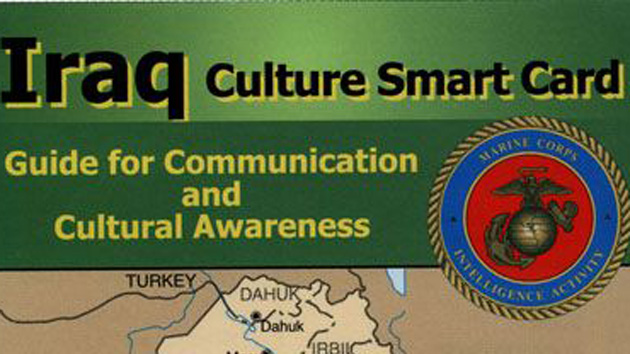
All images from US Defense Department
MoJo‘s Adam Weinstein picked up a copy of the US Defense Department’s Iraq Culture Smart Card on his way to Iraq in 2008. The laminated fold-out guide for soldiers provides phonetic Arabic translations of “Where are the prisoners kept?” and “What type of mines are there?” It also offers cultural Do’s and Don’ts about male hugging and small talk (good), and gestures like OK, thumbs up, and finger pointing (bad). All of the images in this slideshow come from the same US military Iraq Culture Smart Card. Click here to watch a video of Weinstein explaining the US military’s cultural training guides.
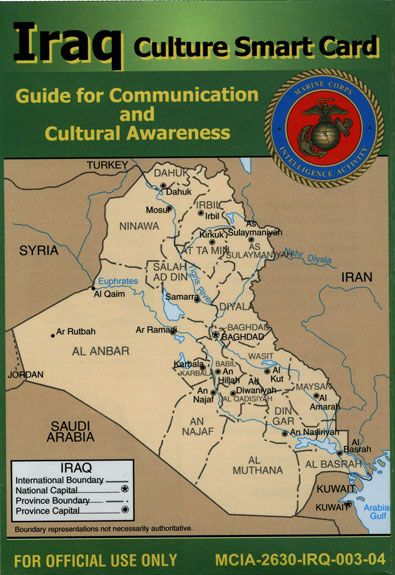
The Iraq Culture Smart Card is provided by the Defense Department to American service members who are deploying to Iraq.

You may be ambushed by a person, a car, or a truck.
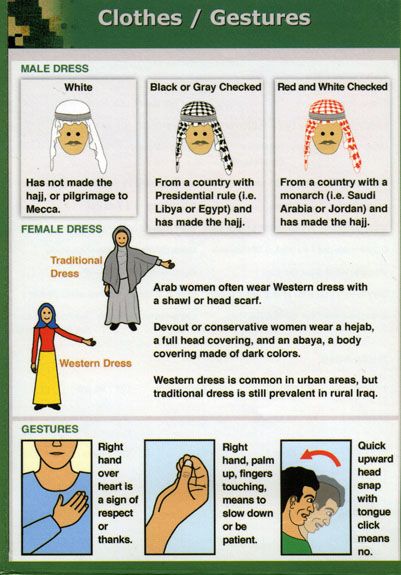
The men here may look like Lego figurines, but at least the women are smiling.
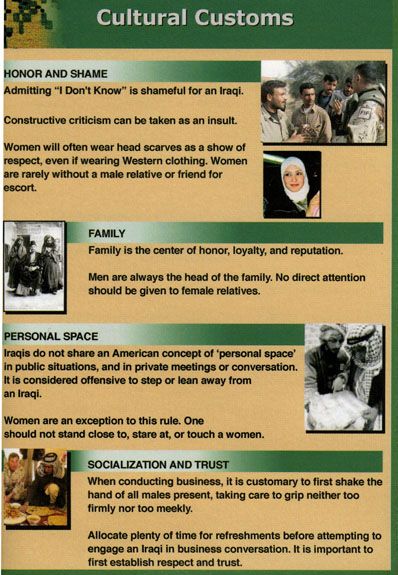
“Constructive criticism can be taken as an insult.”
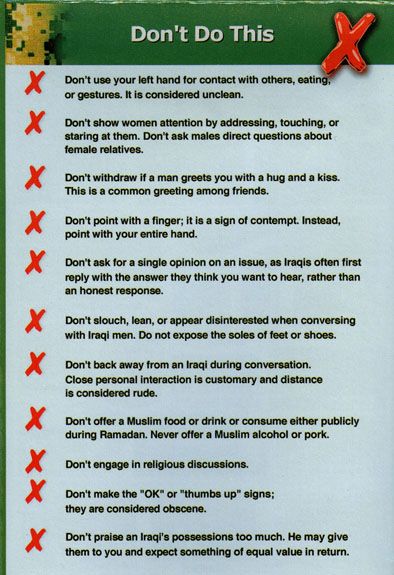
Don’t flirt with women. Don’t freak out if a man embraces you. Don’t try to give anyone a ham sandwich.

Do try all the food, even if it looks gross. Do try to “appear relaxed and friendly.”
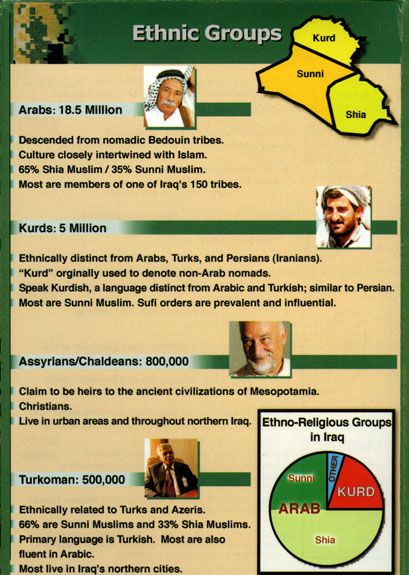
Pie chart looks useful, until you learn Iraq has more than 150 tribes, and those are just the Arabs.
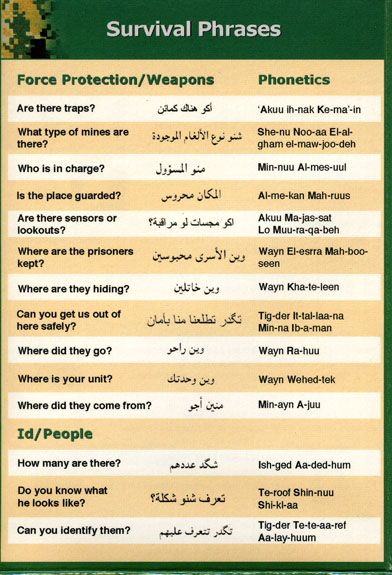
Just because you ask doesn’t mean they’ll tell, but it’s a start.

Lakes and mountains and bridges are helpfully labeled for Americans new to such things.
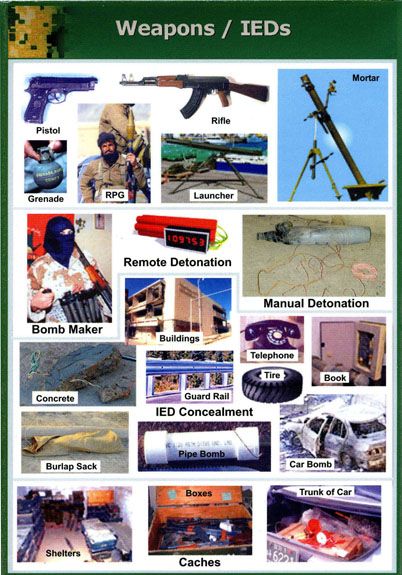
Other IED hiding places not mentioned: under garbage or dead animals.












